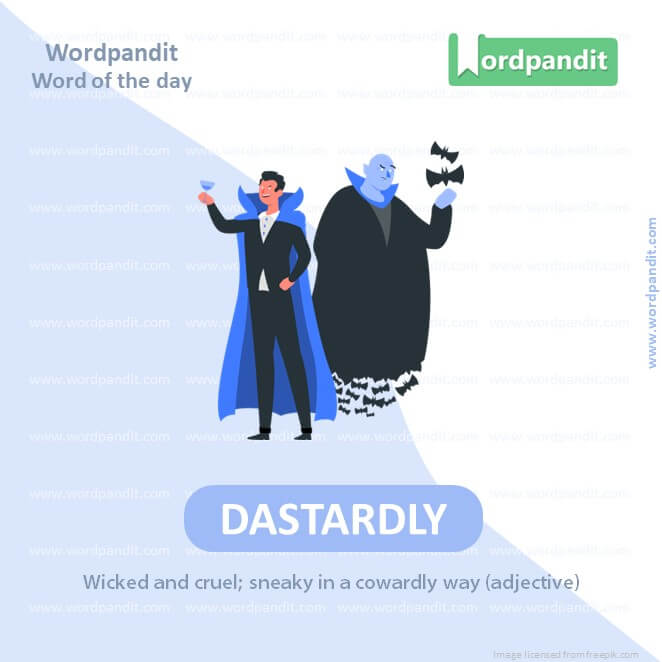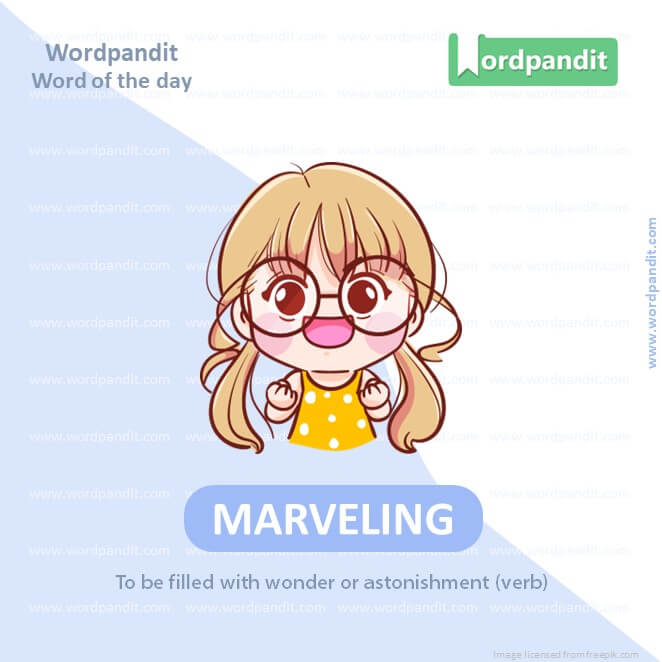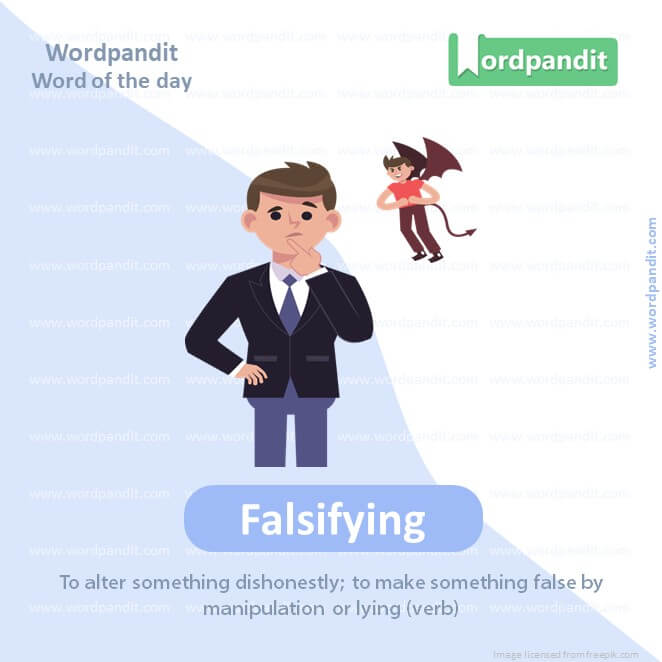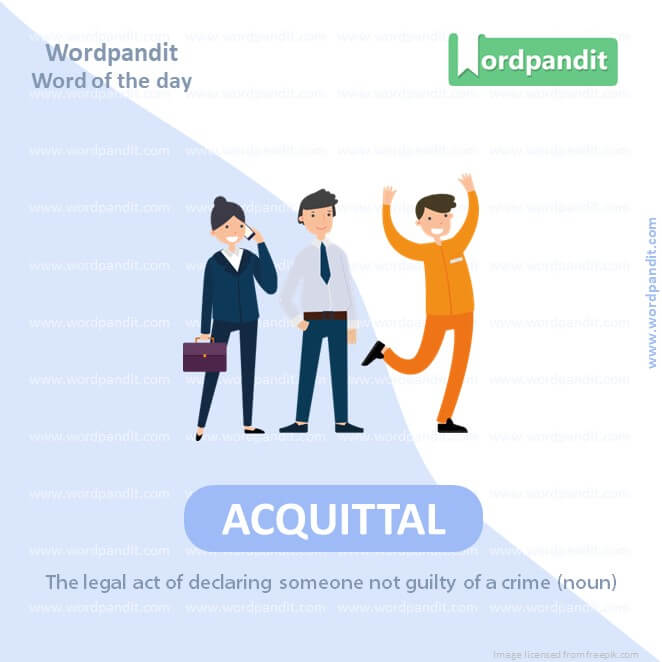Daily Vocabulary Words: Enhance Your Lexicon with Leading Newspapers & Publications
Welcome to the Daily Vocabulary section at Wordpandit!
Our mission is straightforward: to bring you essential vocabulary words featured in top newspapers and publications worldwide. By focusing on words you’ll encounter in renowned sources, we aim to help you enhance your vocabulary effectively and practically.
Our selection includes words from:
– The New York Times
– The Washington Post
– Scientific American
– BBC
– The Guardian
– Psychology Today
– Wall Street Journal
– The Economist
– The Hindu
– The Times of India
– The Economic Times
– Hindustan Times
– Live Mint
– The Indian Express
– And many more.
We are committed to your vocabulary development. Simply visit this section regularly and explore the daily posts. This is your go-to repository for commonly used words, providing significant practical benefits by familiarizing you with vocabulary from the leading publications listed above.
Make it a habit to visit our website daily and expand your lexicon with words from top newspapers and publications.
WORD-1: INEXTRICABLY
CONTEXT: Our spiritual tradition, our dharma, is rooted in tenets we hold dear, and those are inextricably linked with sustainable, eco-friendly lifestyles.
SOURCE: The Hindu
EXPLANATORY PARAGRAPH: Think of a time when you tried to separate the strands of spaghetti that got all tangled up in your plate, and no matter how much you tried, they just wouldn’t come apart. That’s like “inextricably.” It means things are so mixed or linked together that you can’t separate them.
MEANING: Impossible to disentangle or separate (adjective).
PRONUNCIATION: in-EK-strih-kuh-blee
SYNONYMS: Inseparable, entwined, intertwined, linked, connected
USAGE EXAMPLE:
1. The fate of the hero and the villain is inextricably linked in the story.
2. Her life is inextricably connected to her sister’s.
3. The success of the project is inextricably tied to the hard work of its team members.
4. The culture of the city is inextricably bound to its history.
WORD-2: PERVASIVENESS
CONTEXT: The pervasiveness of the Divine in all |The Isha Upanishad teaches that everything is pervaded by the Divine. Every human, every animal, every blade of grass, tree, and drop of water.
SOURCE: The Hindu
EXPLANATORY PARAGRAPH: Imagine a smell of popcorn spreading all over your house, from the kitchen to the living room, everywhere. “Pervasiveness” is like that smell; it means something spreads or exists throughout something completely.
MEANING: The quality or state of being widespread in every part of something (noun).
PRONUNCIATION: puh-VAY-siv-ness
SYNONYMS: Omnipresence, prevalence, ubiquity, universality, widespreadness
USAGE EXAMPLE:
1. The pervasiveness of smartphones means that almost everyone has one these days.
2. She was surprised by the pervasiveness of joy throughout the celebration.
3. The pervasiveness of the internet has changed how we access information.
4. There is a pervasiveness of pollution in the urban areas.
WORD-3: SPLINTERING
CONTEXT: The DMK-led alliance in Tamil Nadu secured all the 39 seats (plus one in Puducherry), which could be explained by some as the consequence of the splintering of the BJP-AIADMK alliance. But that would only be a partial reading.
SOURCE: New York times
EXPLANATORY PARAGRAPH: Think about when you break a stick and it cracks into small, sharp pieces. That breaking into pieces is called “splintering.” It’s just like when something splits into many small parts.
MEANING: The action of breaking or splitting into small, sharp parts (verb).
PRONUNCIATION: SPLIN-ter-ing
SYNONYMS: Fragmenting, shattering, breaking, cracking, splitting
USAGE EXAMPLE:
1. The wooden door started splintering after years of weather damage.
2. He heard the sound of the log splintering as he chopped it.
3. The old coalition began splintering due to internal disagreements.
4. Splintering ice from the glacier created a loud noise.

WORD-4: DASTARDLY
CONTEXT: I don’t think falsifying business records in furtherance of a scheme to pay off a porn star makes a Top 50 list of his most dastardly acts.
SOURCE: New York times
EXPLANATORY PARAGRAPH: Imagine someone being very mean and sneaky, like a villain in cartoons who plans bad things. “Dastardly” is a word that describes someone who is both cowardly and evil, doing things that are really bad.
MEANING: Wicked and cruel; sneaky in a cowardly way (adjective).
PRONUNCIATION: DAS-terd-lee
SYNONYMS: Villainous, nefarious, treacherous, heinous, malicious
USAGE EXAMPLE:
1. The villain’s plan was uncovered, revealing his dastardly intentions.
2. He was known for his dastardly deeds throughout the kingdom.
3. A dastardly act of betrayal shocked everyone.
4. The story featured a dastardly plot against the hero.

WORD-5: MARVELING
CONTEXT: If he’s elected again, I hope four years from now to be marveling at the wisdom of our founders in the same way.
SOURCE: New York times
EXPLANATORY PARAGRAPH: When you go to the zoo and see a huge elephant for the first time, your eyes open wide in amazement. “Marveling” is when you’re so amazed by something that you can’t stop looking at it or thinking about how awesome it is.
MEANING: To be filled with wonder or astonishment (verb).
PRONUNCIATION: MAR-vuh-ling
SYNONYMS: Admiring, wondering, amazed, awestruck, astounded
USAGE EXAMPLE:
1. She spent hours marveling at the beautiful paintings in the museum.
2. The child was marveling at the fireworks in the sky.
3. Everyone was marveling at the magician’s skill.
4. He was marveling at the complexity of the puzzle.

WORD-6: BESTOWING
CONTEXT: There is a tendency to treat this base as more significant than it is — as though it stood as the only authentic representative of the American people, bestowing Trump with the essence of the nation itself.
SOURCE: New York times
EXPLANATORY PARAGRAPH: Imagine giving your friend the best piece of your birthday cake. That act of giving something special is called “bestowing.” It’s like giving, but it often means giving something valuable or important.
MEANING: To give something as a gift or honor (verb).
PRONUNCIATION: beh-STOW-ing
SYNONYMS: Granting, conferring, awarding, presenting, giving
USAGE EXAMPLE:
1. The queen is bestowing knighthoods at the palace today.
2. He took pride in bestowing wisdom to his students.
3. The award was bestowed upon the most deserving volunteer.
4. They are bestowing the title of Honorary Chairperson to her for her contributions.
WORD-7: SOLICITOUSNESS
CONTEXT: All the solicitousness shown toward Trump’s most dedicated supporters — for years, reporters and other observers have evaluated the relative importance of one scandal or another on the basis of whether it moved the MAGA faithful to jump ship, as if this were the most important measure of political consequence for the former president — Trump’s base does not win elections outside of party primaries.
SOURCE: New York times
EXPLANATORY PARAGRAPH: Imagine your mom or dad taking care of you when you are sick, always checking if you’re okay and making you feel better. That kind of caring and worrying about someone is called “solicitousness.” It means you really want to make sure someone else is feeling good and happy.
MEANING: The quality of showing concern or care for someone’s health, happiness, or comfort (noun).
PRONUNCIATION: suh-LIS-ih-tuss-ness
SYNONYMS: Attentiveness, thoughtfulness, concern, care, consideration
USAGE EXAMPLE:
1. Her solicitousness for the well-being of her guests made everyone feel welcome.
2. The nurse’s solicitousness helped calm the nervous patient.
3. He appreciated the solicitousness his friends showed during his recovery.
4. Her mother’s solicitousness grew as the weather worsened and her return home was delayed.

WORD-8: FALSIFYING
CONTEXT: A Manhattan jury found Trump guilty of 34 felony counts of falsifying business records as part of a scheme to influence the 2016 election.
SOURCE: New York times
EXPLANATORY PARAGRAPH: When you draw a picture but tell someone it was drawn by someone else, or if you say you finished your veggies when you actually didn’t, that’s called “falsifying.” It means you’re making something untrue seem true or changing information so it’s not right anymore.
MEANING: To alter something dishonestly; to make something false by manipulation or lying (verb).
PRONUNCIATION: FAWL-suh-fye-ing
SYNONYMS: Fabricating, distorting, misrepresenting, lying, counterfeiting
USAGE EXAMPLE:
1. The company was caught falsifying its financial records.
2. He was accused of falsifying documents to gain an advantage.
3. Falsifying data in scientific research is a serious offense.
4. The witness was guilty of falsifying testimony during the trial.

WORD-9: ACQUITTAL
CONTEXT: The alternative is to think that Trump preferred a conviction to an acquittal. But that’s nonsense.
SOURCE: New York times
EXPLANATORY PARAGRAPH: Imagine playing a game where someone says you took a cookie from the jar, but then everyone finds out you didn’t do it, so they say, “It’s okay, we know you didn’t take it.” That’s like an “acquittal.” It means when someone is officially told by a judge that they are not guilty of something they were blamed for.
MEANING: The legal act of declaring someone not guilty of a crime (noun).
PRONUNCIATION: uh-KWIT-ul
SYNONYMS: Exoneration, clearing, discharge, release, absolution
USAGE EXAMPLE:
1. The jury’s verdict resulted in his acquittal of all charges.
2. She breathed a sigh of relief after her acquittal was announced.
3. The evidence presented led to his swift acquittal.
4. The news of his acquittal spread quickly among his supporters.
WORD-10: MONGERING
CONTEXT: When the immigration fight is only about fear mongering around the border, Donald Trump wins.
SOURCE: New York times
EXPLANATORY PARAGRAPH: When someone keeps talking about things that make others scared or worried, like saying there’s a monster under the bed, that’s called “mongering.” It’s like spreading stories or ideas that make people feel bad or scared.
MEANING: To promote or sell something, typically used in combination with a negative quality or product (verb).
PRONUNCIATION: MUN-guh-ring
SYNONYMS: Spreading, promoting, peddling, stirring up, inciting
USAGE EXAMPLE:
1. He was accused of fear mongering to influence public opinion.
2. The article accused the media of rumor mongering during the crisis.
3. She criticized the irresponsible mongering of conspiracy theories.
4. His speech was an example of war mongering and aggression.
Vocabulary new Words
In the exuberant realm of language learning, nothing holds more thrill than the discovery of ‘vocabulary new words’. These gems of knowledge bring with them a fresh perspective and a deeper understanding of language. However, learning ‘vocabulary new words’ requires a methodical and focused approach.
The act of learning ‘vocabulary new words’ is a delve into linguistic novelty, often involving exposure to unfamiliar structures and meanings. Transcending the traditional approach of mere memorization helps in truly cementing newly learnt words into long-term memory. Interaction with a broad spectrum of written and spoken material, including novels, films, podcasts, and digital resources, provides a rich context of ‘vocabulary new words’ and significantly aids in their comprehension.
It’s noteworthy that unpacking ‘vocabulary new words’ is a steady process rather than a rushed one. A planned approach with a specific number of words, learned and reviewed each day, proves beneficial in effective learning. Coupling this method with technologies such as flashcards or memory-enhancement software can optimize the retention of ‘vocabulary new words’.
Integrating mnemonic devices and visual imagery is another highly efficient tool when learning ‘vocabulary new words’. Assigning unique stories or visuals to new words can enhance recall, making unfamiliar vocabulary much more approachable.
Lastly, practicing ‘vocabulary new words’ within daily routine is crucial for grasping their usage. Whether it’s through active utilization in conversation or incorporating these words in written communicative situations, application reinforces understanding.
In summation, mastering ‘vocabulary new words’ is an enriching pursuit that expands our linguistic horizons. However, a balanced approach, combining diverse reading materials, pacing your learning, employing memory-boosting strategies, and daily practice greatly streamlines the task. Embark on this fascinating journey, and let the ‘vocabulary new words’ fill your linguistic canvas with a fresh palette of expressions.













